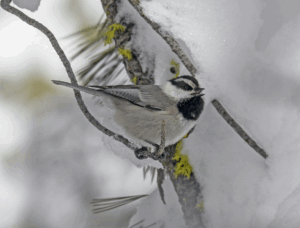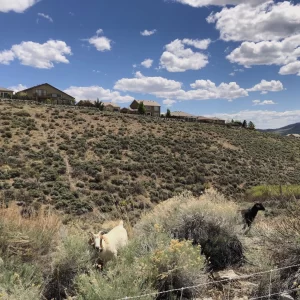Devere Dressler is a 5th generation Nevada rancher who runs cattle on both sides of the Sierra Nevada mountains, and has been adapting to climate change by using modern ranching practices.
Dressler uses irrigation from a local stream to water his fields, which allows the grass to grow that the cattle will eventually eat.
Western Nevada depends nearly 100% on irrigation for agriculture, and that nearly all of that water comes from snowmelt, says Daniel McEvoy, a climatologist with the world renowned Desert Research Institute in Reno, Nevada. McEvoy studies the effects of climate change and drought for the populations in Western Nevada.
McEvoy says the snowmelt is under threat from climate change; we can expect less precipitation and warmer temperatures reducing the amount of snow the region gets, and hence the less water available for agricultural use.
Both rancher and climatologist point to actions that can start to address the challenge of less water and less reliable water. Dressler works on keeping irrigation channels clean to allow water to pass more freely, and keeping riparian areas fenced off so cattle won’t disrupt them.
McEvoy emphasizes weather forecasting to better predict droughts, as well as outreach to farmers about when and how best to use irrigation water in the most efficient way possible.
The short film Nevada Roots is a journey into the beautifully rugged Eastern Sierra, about a subject that is deeply imprinted onto the minds of all people in the Western U.S., namely that of water, or the lack thereof, and how climate change is affecting the livelihoods of the traditional ranching communities of the region.





